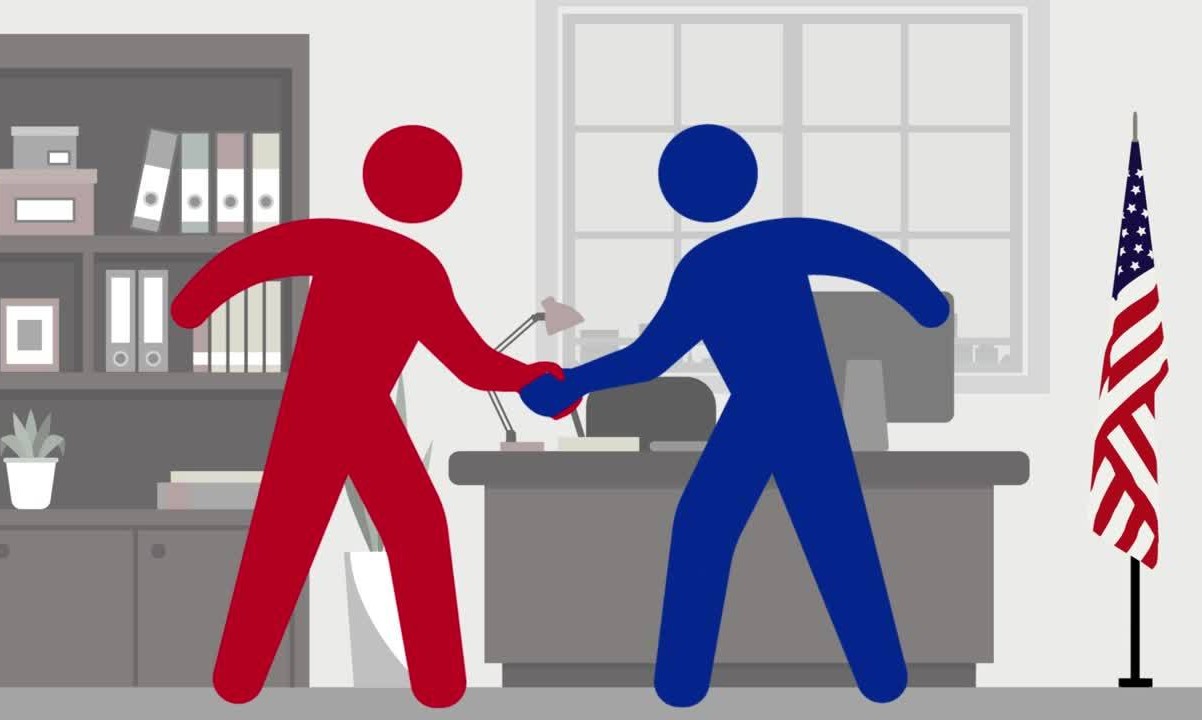Bipartisanship is the art of cooperation between different political parties to create policies and solutions that benefit everyone. It requires compromise, dialogue, and mutual respect. This quiz will take you through the history, key moments, and principles of bipartisanship. Are you ready to see how much you know about this essential aspect of politics? Let’s get started!
We recommend that you do not leave the page that you are taking this quiz in. Stay honest 🙂
Bipartisanship Quiz Questions Overview
1. What is bipartisanship?
A system where one party dominates
Cooperation between two political parties
A political system with multiple parties
A form of government with no parties
2. Which of the following is a notable example of bipartisanship in the United States?
The New Deal
The Civil Rights Act of 1964
The Affordable Care Act
The Patriot Act
3. Which U.S. President is known for his efforts to promote bipartisanship during his administration?
Franklin D. Roosevelt
Ronald Reagan
Barack Obama
George H.W. Bush
4. What is one potential benefit of bipartisanship?
Increased political polarization
More stable and lasting policies
Reduced voter turnout
Increased party loyalty
5. Which term describes a situation where political parties refuse to work together?
Bipartisanship
Partisanship
Nonpartisanship
Multiparty system
6. Which U.S. legislative body is often seen as a place where bipartisanship is necessary to pass significant legislation?
The House of Representatives
The Senate
The Supreme Court
The Executive Branch
7. What is a ‘bipartisan commission’?
A commission made up of members from one party
A commission with members from both major parties
A commission that excludes political parties
A commission that only advises the President
8. Which of the following is a challenge often faced in achieving bipartisanship?
Lack of political parties
Ideological differences
Too much agreement
Excessive funding
9. What is one way citizens can promote bipartisanship?
Voting strictly along party lines
Encouraging dialogue and compromise
Avoiding political discussions
Supporting only extreme candidates
10. Which U.S. President signed the No Child Left Behind Act, a bipartisan effort in education reform?
Bill Clinton
George W. Bush
Barack Obama
Donald Trump
11. What is the primary goal of bipartisanship?
To eliminate political parties
To create more political parties
To find common ground and work together
To increase political polarization
12. Which of the following is an example of a bipartisan foreign policy initiative?
The Marshall Plan
The Vietnam War
The Iraq War
The Paris Agreement
13. Which term describes a political approach that avoids strict party alignment and seeks to include multiple perspectives?
Bipartisanship
Partisanship
Nonpartisanship
Tri-partisanship
14. Which U.S. President is known for the bipartisan effort to create the Interstate Highway System?
Harry S. Truman
Dwight D. Eisenhower
John F. Kennedy
Lyndon B. Johnson
15. What is one reason bipartisanship might be more difficult to achieve in a polarized political climate?
Increased willingness to compromise
Greater ideological divides
More moderate political views
Increased voter engagement
16. Which U.S. legislative act is an example of a successful bipartisan effort in healthcare reform?
The Affordable Care Act
Medicare Prescription Drug, Improvement, and Modernization Act
The Social Security Act
The Children’s Health Insurance Program (CHIP)
17. What is a ‘bipartisan caucus’?
A group of legislators from one party
A group of legislators from both major parties
A group that excludes political parties
A group that only advises the President
18. Which of the following is a benefit of bipartisan legislation?
Narrow support base
Broader public acceptance
Increased political conflict
Short-term solutions
19. Which U.S. President worked with Congress to pass the bipartisan Americans with Disabilities Act (ADA)?
Jimmy Carter
Ronald Reagan
George H.W. Bush
Bill Clinton
20. What is one way bipartisanship can improve the legislative process?
By increasing political gridlock
By fostering cooperation and compromise
By reducing the number of bills passed
By increasing partisanship
21. Which U.S. President is known for the bipartisan effort to pass the Tax Reform Act of 1986?
Richard Nixon
Gerald Ford
Ronald Reagan
George H.W. Bush
We recommend that you do not leave the page that you are taking this quiz in. Stay honest 🙂











